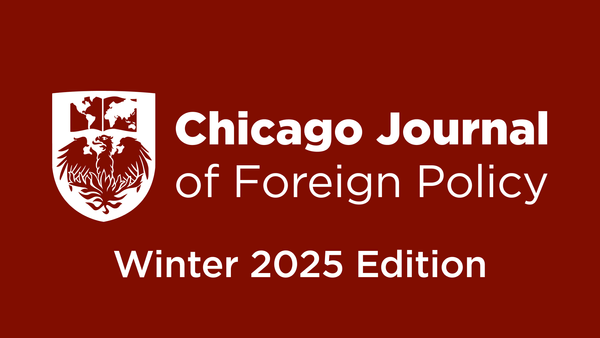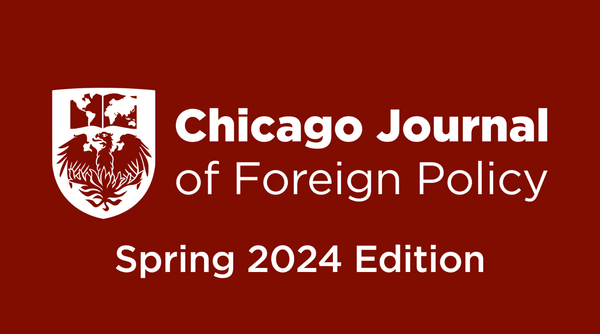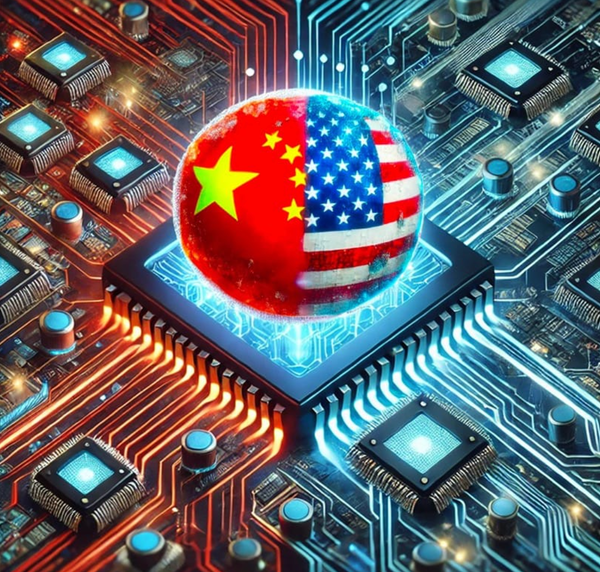Our Globalized World

by JOSH WARD
If you’re anything like me, you were at the edge of your seat as you watched a man scheme to sway the US Presidential election. The victory of a man who degraded the platform of his predecessor, even as it was predicted that he wouldn’t win was dumbfounding. I was in awe, seeing a man on the screen throw caution to the wind and do whatever it takes to make it to the White House, despite not having acquired the position through the typical democratic process. Prior to seeing it all unfold, it would have been unfathomable for a man like that to occupy 1600 Penn. If this wasn’t enough, watching the Russian Ambassador coerce the President via high ranking appointees was sickening, while at the same time it gave rise to the need to know how it all worked. Does any of this sound familiar? I’m talking about the critically acclaimed Netflix series House of Cards starring the Golden Globe winning Best Actor and Actress in a Television Drama, Kevin Spacey and Robin Wright. What were you thinking about?
The show explores how the Underwoods, a brilliant husband and wife duo, engage in the more sinister side of political behavior to rise to the White House. We get to watch the consequences of stripping the American Presidency of its democratic checks and balances to achieve an outcome we all want to see. We have to weigh the ends against the very humane means when considering how we would deal with a political opponent if we were in their shoes. If I were them, would I sidestep the traps and rigidity of official foreign relations to get things moving again? This no-limit-knowing side of aspirations tends to be quarantined off from the public persona, but we get to engage them as we watch them play out on the screen. Is there any price too high to pay if we are working on making the world around us better? These unlikely thoughts tend to be expressed by those those among us labeled as deplorable. But to many around the world Lady Liberty, a French-born native New Yorker, has a footprint that looks less like the structurally refined curves of Christian Louboutin’s iconic red bottom pumps, and more like the running shoes of Pheidippides after his legendary run: rough, worn out and outdated.
When I was studying in London, I conducted a study to explore the idea and differences of the ‘living’ and ‘lasting’ legacy of the US. The living legacy of the United States represented the current makeup of government; the politicians and the political climate; citizens and civil discourse; and the challenges facing America. More complex of an issue to explore was the lasting legacy of the United States. Understanding the trajectory of intended outcomes as they traveled from decisionmakers to the lives of people all over the world incorporated a more dynamic understanding of both the contemporary challenges facing international security and global stability, and priorities of national interests. In essence, the notion of a living and lasting legacy comes from a discourse between the history and the historiography of the United States. History might tell the stories of American victories. But the historiography of the United States underlines the narrative of the disenfranchised voices in the same stories. This informs us as to why, in an intergenerational conversation about the strengths and weaknesses of the United States, each person might give a different example of what makes America great and what weakens it.
Before we get into the intimate details of federal spending on defense versus diplomacy, let’s first explore globalization through the lens of social media. I was recently in Montreal for a recreational visit and, as per any trip, I needed naturally lit, well manicured Instagram pictures, geo-tagged at iconic locations with hints of Canadian heritage. Now, anyone familiar with traveling and lifestyle blogs knows that food is at the forefront of any conversation, so, of course, to those watching my Snapchat, the smell of a French bakery was not too distant from the imagination. While perusing through social media, I saw and Italian traveling through the Middle East, Southeast Asia through the eyes of a Spaniard, the Maldives by way of a Bostonian, and Mexico from a New-Yorker’s volunteer work. The internet has democratized the exposure to the world around us, and the diffusion of culture travels both ways.The power of the American entertainment industry and the following American celebrities have amassed around the world (as understood through their social media followers), indicates the gravity of how our actions as Americans influence the world around us. Additionally, when we see artists returning from a world tour in European fashion and dedicated to a Japanese diet, we understand how global trends influence our values and way of life.
Now that we’ve scrolled to the bottom of our timelines, let’s have that conversation on spending. As we know, the Undersecretary of Defense (Comptroller) outlined a $585.3 billion budget for the DoD for the 2016 fiscal year.The Department of State and USAID together requested $50.3 billion dollars for the same fiscal year. Though the numbers can speak for themselves, I want to make a few quick DoD vs. DoS comparisons. The Foreign Service, the diplomatic branch of the State Department, has fewer diplomats (around 5 thousand) than the United States Army Band has members, and US Marine Corp has nurses. A person might assume that a country with 307 embassies, consulates and diplomatic missions (plus the embassy in Cuba that was not open when this count was done) might need a larger workforce than roughly the size of the my hometown’s rivaling high school. I heard this from a long-serving American Foreign Service Officer, (but you can fact-check it for yourself.) Strategically, if we as Americans would like to see a safer and more secure world, we are going to have to maintain our defense while investing more heavily in diplomacy.
Focusing on the State Department, we know the President released a proposal to cut State’s budget by 28%. When working at the US Mission to the United Nations we discussed the merits of the then candidate, soon to be President, potentially defunding American contributions to the UN. To give a clear picture of the role the United Nations plays in foreign policy, let’s take a closer look. The US Mission to the United Nations is housed in the Department of State, but the US Ambassador to the United Nations is a Cabinet level position and (up until recently) had a seat on the National Security Council. Though the City of New York faces unique security and operational challenges during High-Level week, when the world’s leaders convene to open the annual negotiations of the General Assembly, the United States enjoys a privilege in the UN Community. We use the United Nations to engage the international community beyond bilateral and regional relationships. The UN afforded the platform for the US to negotiate JCPOA, the agreement that prevents the nuclear proliferation of Iran without compromising the integrity of existing American sanctions on Iran.
Having worked on the 5th Committee team at the US Mission to the UN, I can tell you a few things about the numbers. We can discuss how the budgets are divided and paid in brutal details another time, but here are some things to know. The US is the largest financial contributor to the United Nations, giving about a quarter (22%) of the regular budget and just under a third of the peacekeeping operations budget (approx. 27%). Contrary to popular belief, this number isn’t drawn up by random selection and unduly handed to the United States. An equation that factors in the size and strength of a country’s economy, weighed against the global average (plus a few other technical factors), is formulated to calculate the scales of assessment. The scales of assessment leads us perfectly into Article 19 of the UN founding charter and the future of the United States’ role in the UN.
Article 19 is the UN rule that strips a country of its right to vote if the country is two years behind in its financial contributions. Should the United States seek to pay less to the UN budgets, the General Assembly would have to agree to change the scales of assessment in order to prevent the bill from growing. When a country reaches the two year threshold of Article 19, delegations can vote within the Fifth Committee to waive the article and reinstate voting privileges. For countries facing extreme financial pressures unable to make their payments, like the four countries facing the article at the opening of the General Assembly in 2016 (UNGA 71), the vote is typically smooth and without debate. However, last year, Brazil inched dangerously close to Article 19. Though they made their payments before reaching the 2 year mark, a conversation was sparked about a larger regional influence potentially losing its right to vote within the General Assembly. Let’s consider a few years from now, if Article 19 were invoked against the United States: would the General Assembly agree to reinstate American voting privileges? How would the potential loss of our vote within the UN (and on the Security Council) tilt the balance of power and influence the United States currently exercises? How does this conversation change when we take the ever expanding influence of China into consideration?
From its growing economy and population to Climate Change, and even entertainment, China is taking a more active role in the globalized community. China, before 2030, will nearly match the United States’ financial contributions to the United Nations regular budget, bearing a responsibility to the international community like it has never had before. Despite the frequent polarizing rhetoric, cyber-attacks, and conflicting political priorities, the issues facing the Chinese will be the issues we as Americans confront. The success of the Asian markets will become closer aligned to those of the western ones. We need to identify how we can invest in more cooperative measures and diplomatic infrastructures before regional tensions give rise to, what divorce lawyers recognize as, irreconcilable differences. Successful cooperation between China and the US is understood in how previous bilateral negotiations reduced the carbon emissions of the two largest producers of greenhouses gasses in the world, and helped produce the most comprehensive international agreement on climate change to date, COP 21.
Since the 2016 Presidential election, the international community has expressed that it is exploring avenues to redress and or retaliate should the United States pull out of the Paris Climate Change Agreement. In my time at the US Mission, the question was raised, should the 45th President of the US seek to withdraw from the Paris Climate Change Agreement, would it fall out of force? The Obama Administration was diligent in ensuring institutional safeguards against the potential future American politicization of the issue. Thankfully, the lawyers got back to us and explained that once the agreement went into force, it could not be undone. With the United States having already withdrawn from the Paris Climate Change agreement, we have to ask ourselves: How much are we willing to risk for “America First” policies?
There are serious consequences we should be exploring when we discuss an “America First” foreign policy platform. Prioritizing American oil production to undermine the realities that climate change is having on the world is no longer a matter of polarizing discourse, but of national security and human integrity. In March of this year, Secretary of Defence Mattis acknowledged to a Republican dominated Senate, that Climate Change is a matter of national security. The security threats of climate change threaten the movement of troops in tough terrain and the future living conditions of the world’s population. The scientific community broadly recognizes that a rise in the earth’s temperature two degrees would be the targeted goal for managing the effects of climate change. Full cooperation and adherence to COP21 only brings the rise in the earth’s temperature down to between 2.5-2.7 degrees celsius. Exploring the potential damage of the United States pulling away from its commitments to minimize the rise of the earth’s temperature has severe economic implications for the United States, and for the displacement of people throughout the world. For every degree the Earth and the sea temperatures rise, the winds in severe weather patterns increases, the more devastating cyclones, monsoons and typhoons become. South-Pacific island nations are having to buy land on neighboring islands, or in major countries to send their people to live as refugees, climate change refugees.
In the discussion on refugees, I can identify one transcendent value, human rights. I find that conversations, and many aspiring professional seeking to work in the field of human rights, compartmentalize the issue beyond function. The politicizing of the issue can be likened to the polarity of discourse on firearms in the United States, trigger words and deadlock. We need to diffuse the value of human rights into a broader professional understanding, knowing that corporate responsibility and engagement can produce significant and profound changes. While governments set the tone for many of the issues, we can’t expect them to do it all, and do it alone. In 2016, we saw companies like Uber partnering with UNHCR, Airbnb offering housing to refugees, Google partnering with the Clooney Foundation to provide education to refugees, all demonstrating the need for innovative public-private cooperation on the human rights front.
I know this can be a polarizing conversation to have, so let’s talk numbers, or facts as we know them. Today, there are 65 million refugees throughout the world. The High Commissioner of Refugees was just elected Secretary General of the United Nations in the Fall of 2016, indicating the priority of the issue globally. The conflict in Syria has displaced more than six million people and created over five million refugees fleeing to neighboring countries. This is the scale we understand war can have on the creation of refugees.
What happens when we look at the effect of Climate Change on the displacement of people? We often times talk about climate change as it will occur 100 years from now. But what if we cut about 70 years off that projection and look at 30 years from now, something you and I will likely live to see? By 2050, climate change is on track to displace upwards of 150-250 million people due to conditions of famine, rising sea levels and severe weather conditions, according to a study conducted by the UN Office for the Coordination of Humanitarian Affairs in conjunction with other UN partners and agencies. According to studies conducted by Climate Central if the earth temperature is allowed to raise by four degrees globally, the rise in sea levels could displace as many as 120 million people in China and the United States alone, and upwards of 750 million people globally. If the current refugee crisis has raised global tensions and exposed the incapacity of governing systems to manage the issue, the future displacement of people by climate change will certainly give rise to global conflict if we don’t approach it differently.
So for those of us who live in this world, understand it to be increasingly integrated, and want to make a difference, how do we more forward? For starters, we don’t separate ourselves from the issues. When Leonardo Dicaprio, as a UN Messenger of Peace, promotes Climate Change Awareness, or Anne Hathaway and Priyanka Chopra as Goodwill Ambassadors leverage their platform to elevate the voices of women and children around the world, they do so by qualifying their privilege. We will need to take a larger role in conversations and the policy making process of foreign policy and international relations. Contributing diversity to discourse drastically improves the population of ideas and potential solutions. During my time at the US Mission to the UN I heard the following expression characterize the Foreign Service: Pale, Yale and Male. The expression connotes the hegemony White men from Ivy-League backgrounds have experienced in the field. Susan Rice, as National Security Advisor to former President Obama, penned an essay explaining that minorities make up about 40% of the US population and hold less than 20% of top diplomatic posts, and less than 15% of top military and senior intelligence positions. We have to take part in the process. We cannot allow systems of international cooperation like the UN, to move at a glacial pace while glacial thawing and and severe weather are on track to displace hundreds of million of people in our lifetime. I’m not recommending the ethically dubious methods of the Underwoods, but we do have to start operating outside the traditional avenues of acceptable government practice to create a safer and more inclusive world.
When talking about Climate Change at the United Nations, we know the island of Manhattan is as susceptible to the rise in sea levels as are all the other islands of the world and coastlines alike. When we discuss the US-Chinese relationship and the distrust between the two nations, we have to understand the needs of the Chinese in the same way we understand ours as Americans: as parents seeking to provide for their families; as young people with ambitions whose government does not always reflect our views; as citizens who want to create a better world around us; and as a growing innovative economy.
When the Magna Carta, the US Constitution, and UN Climate Change agreements were drafted, the rules were set based on contemporary political economies. Though we may have a more comprehensive framework for the democratic process moving forward, we are no less responsible for innovating more inclusive and representative forms of government than the British nobles near Windsor in 1215, the American delegates in Philadelphia in 1787, and the international diplomats in Paris were in 2015. There are no right answers, only a series of challenges for which we will need to maintain the integrity of human life while balancing the needs of national security, and international stability. This is the future of integrating American foreign policy with the globalized community and challenges around us.
Works Cited
Ambassador Rice, Susan “Building a National Security Workforce That Fully Reflects America,” ObamaWhiteHouse.Archives.com. National Archives and Records Administration. October, 5, 2016.
Carter, Ben. “Is China’s economy really the largest in the world?” BBC News. December 16, 2014.
Clemens, Danny. “Climate Change by the Numbers: 760 Million Displaced by Rising Sea Levels.” Discovery.com. Discovery, 10 Nov. 2015.
“COP21 climate change summit reaches deal in Paris.” BBC News. December 13, 2015.
Department of Defense. 2015. United States Department Of Defense Fiscal Year 2016 Budget Request Overview.
Department of State. 2015. Congressional Budget Justification Department Of State, Foreign Operations, And Related Programs.
Henry, Devin. “Trump’s Defense secretary calls climate change a national security risk.” TheHill. March 14, 2017.
Internal discussion with 5th Committee Budget Expert, October, 2016.
Internal discussion with Career US Foreign Service Officer, September, 2016.
Mohammed, Arshad. “Trump plans 28 percent cut in budget for diplomacy, foreign aid.” Reuters. March 16, 2017.
Roberts, Amy. “By the Numbers: U.S. diplomatic presence – CNNPolitics.com.” CNN. May 09, 2013.
United Nations. OCHA. Policy Development and Studies Branch. Climate Change and Humanitarian Action: Key Emerging Trends and Challenges.
“UN: Number of Syrian Refugees Passes Five Million.” Syria News | Al Jazeera. Al Jazeera, 30 Mar. 2017.
USUN Debrief with US Ambassador Power on UN General Assembly 71. October, 2016.





